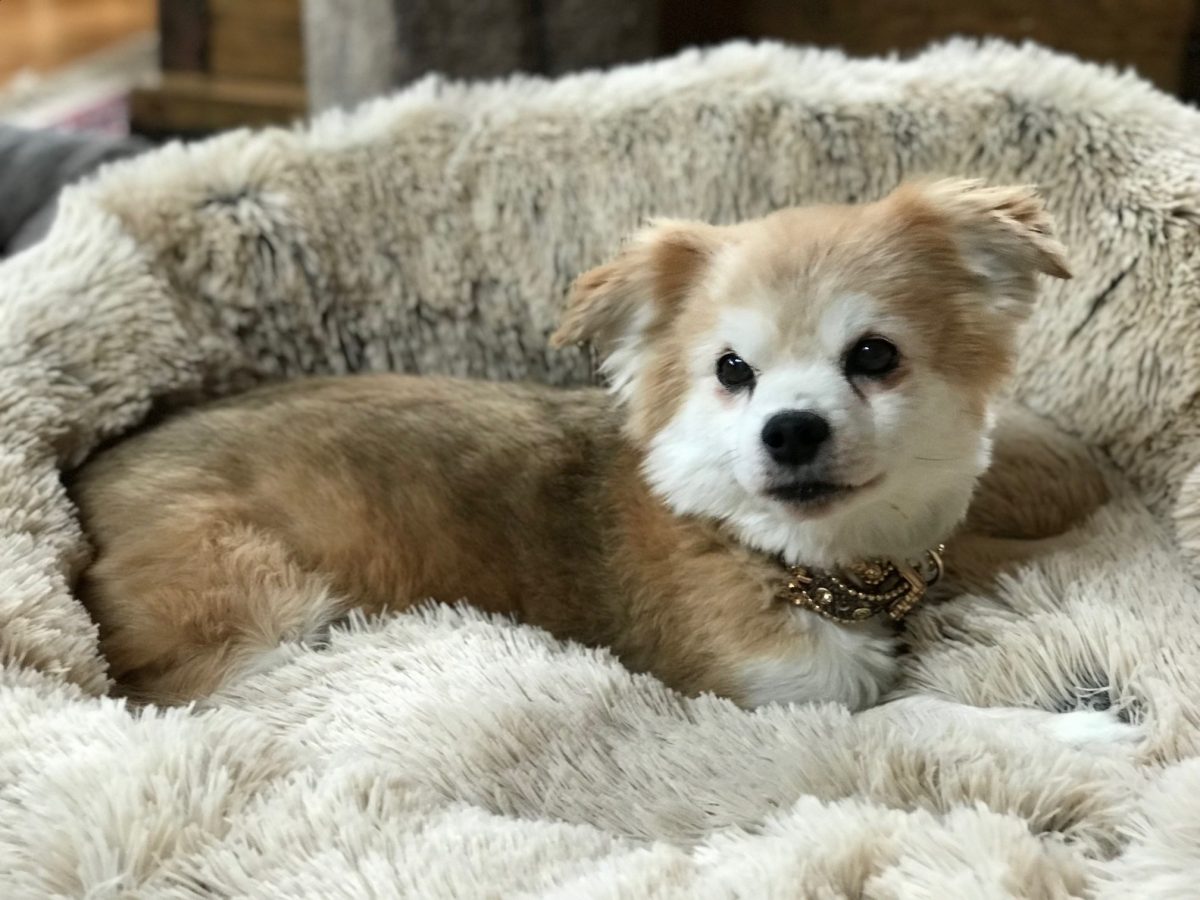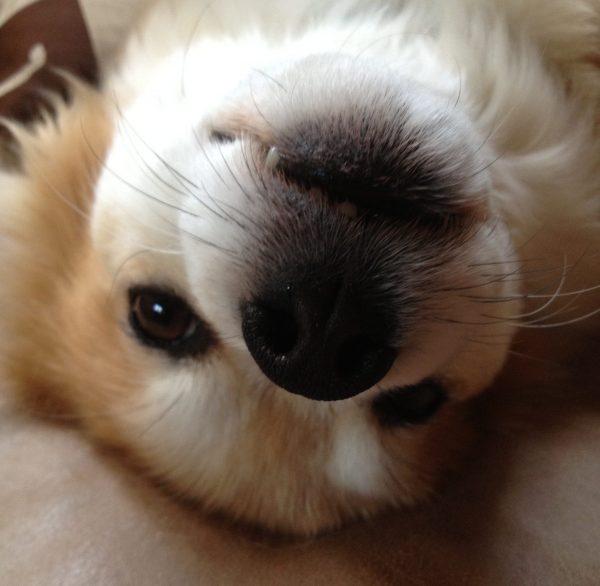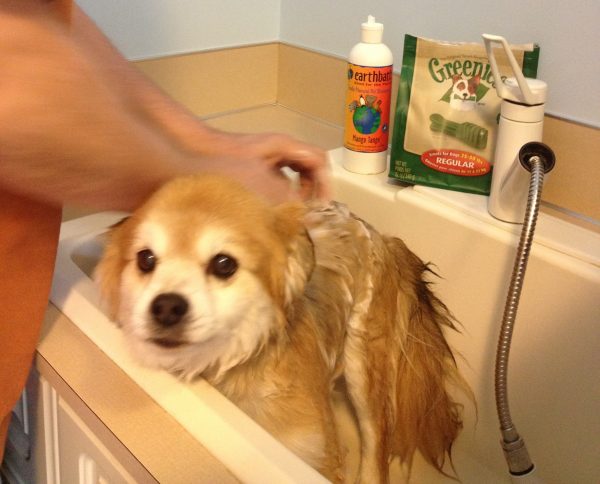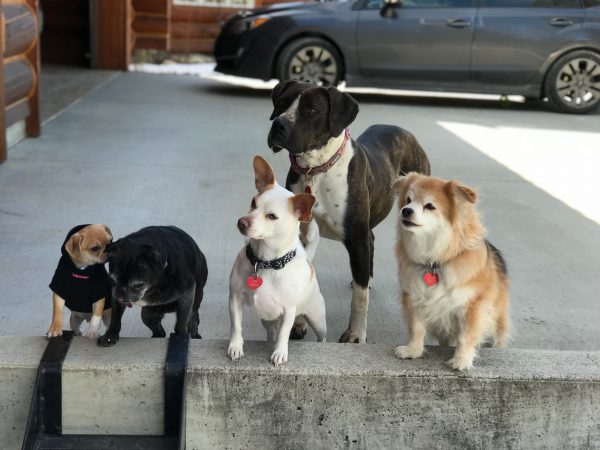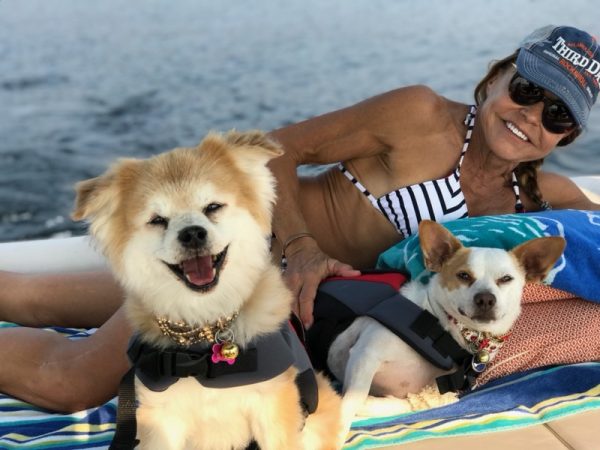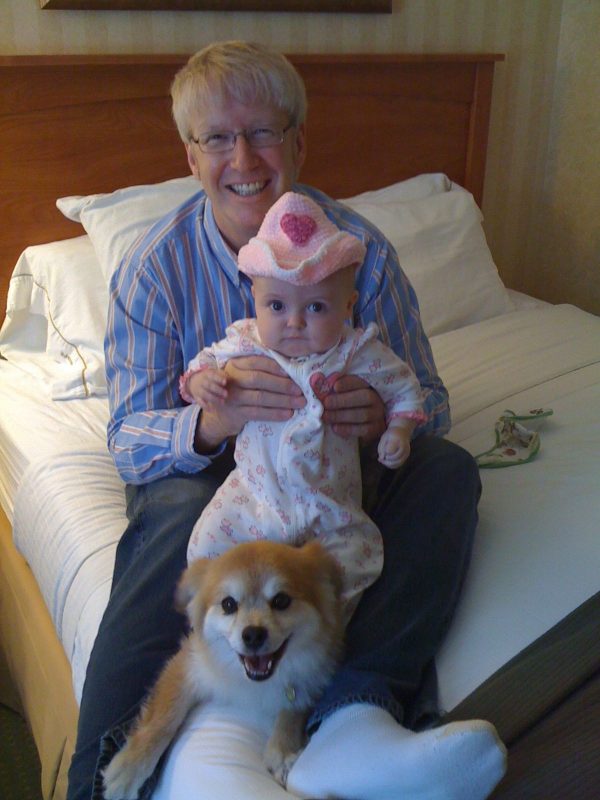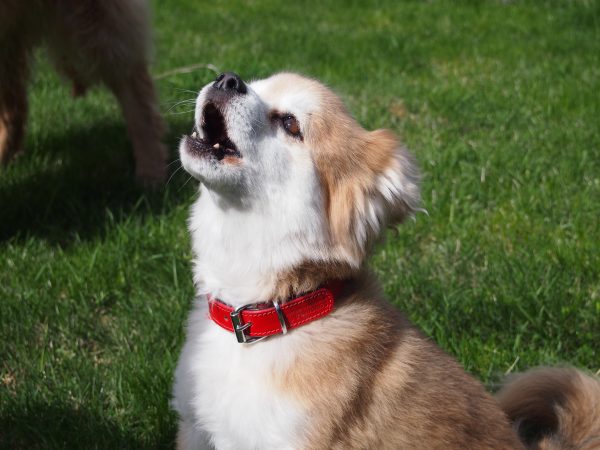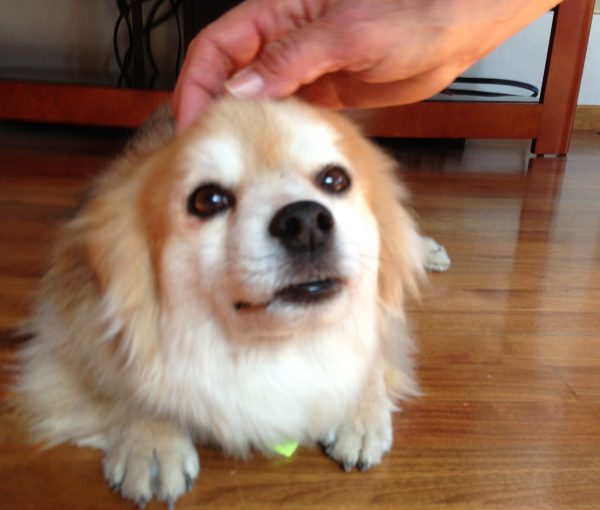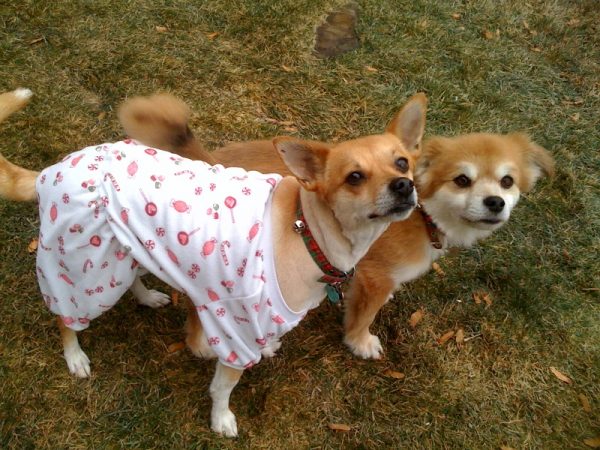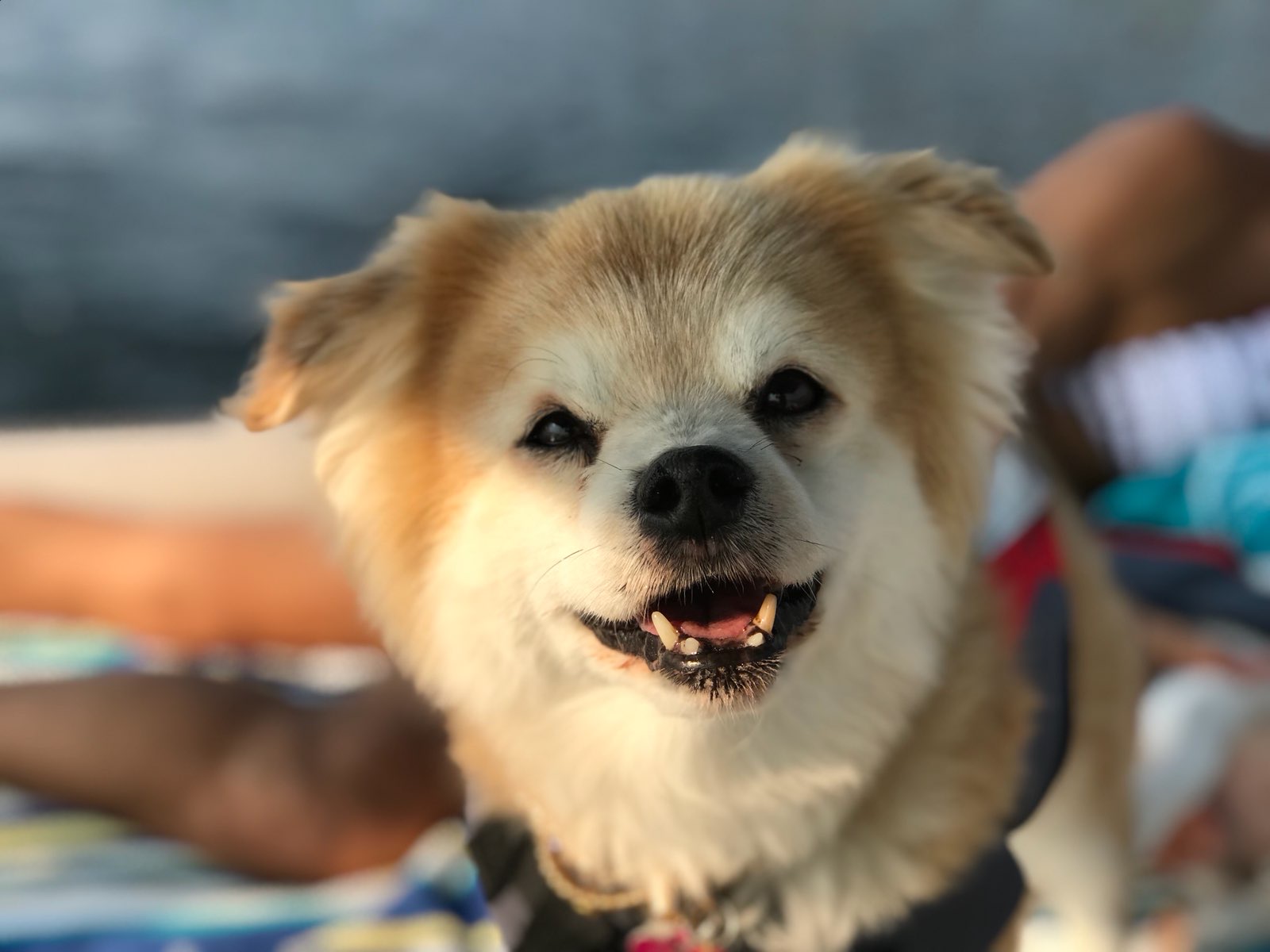2002 was a sentinel year in our lives. My beloved wife, Teresa, had lost her dad and my best friend, Jim Burkholder, after a brief battle with lung cancer. Teresa’s grief was severe. For the next 12 months she was in a dark cloud, with only brief visits to the sunshine side of the mountain. Teresa is faithful and stubborn, and while she prayed and almost pounded the ends of her femurs off exercising at unimaginable levels of intensity, she refused to see a therapist or our family doctor about depression to see if antidepressants would help.
Our 16-year-old daughter, Mikkel, and 12-year-old son, Lex, were really worried about her. Teresa’s 78-year-old mother, Valdie, and 55-year-old brother, Rockey, would ask for prayers in the Bonners Ferry United Methodist church almost every Sunday. I remember asking God how he could help us put light back into her eyes. As it turned out, the answer was not a vacation, even more exercise, a visit with a psychiatrist, group therapy, or a pharmaceutical. It was a tiny two-pound puppy.
When we had lost our dog Bode years before, Teresa had gone almost a year not wanting to talk or think about him. That grief extended to not wanting to talk to or touch any other dog. This invisible force field around dogs that affected Teresa was difficult and seems odd for the wife of a veterinarian and lifetime pet lover. But now, in the aftermath of losing her father, we’d be the first to agree her grief was extreme. What was God doing with her? Couldn’t He help? Little did we know that He heard our prayers.
We were driving from our home north of Bonners Ferry, Idaho, to Spokane, Washington, to catch a flight for a short family vacation. I was driving and Teresa was reading the Spokesman Review newspaper where she happened to see a classified ad for Papillion/Poodle/Yorkie cross puppies in Athol, Idaho (a funny named town celebrated with t-shirts and coffee mugs).
I noticed that a light was coming from Teresa’s eyes and I said, “We should look at them.” To my surprise, she didn’t say no. I asked her to call them and we found out that they lived very close to an Athol gas station/convenience store that was on our way and we agreed on a time to meet there about 30 minutes later. We told them our vehicle type and color and they told us they’d be arriving in a van. (Obviously, this is a terrible way to get a puppy, but it was a long time ago and we didn’t know better.)
We weren’t there very long before a rusted-out conversion van with four swivel captain seats, a bed in the back, and lots of red crushed velvet pulled up beside us. It backfired and honest to God, smoke came out of the back, like a Cheech and Chong van. The sliding door opened up, and out came a hippie-looking woman in her late 30s or early 40s holding up two fluff ball puppies.
We got out of our SUV and approached. I asked where the mom and dad were and they said back home. I have to admit my BS radar was going off, but I checked the one female (white) and one male (calico colored) like a veterinarian would: gums pink, felt chest for a murmur, alignment of teeth, umbilical hernia, testicles descended in the male. Teresa embraced them like a pet lover would: hugging them, holding them up to look into their eyes, stroking their fur, kissing them, telling them how beautiful they were. Teresa liked the white female, while Mikkel, Lex, and I loved the male. The female was more standoffish and shy. But the little male just kept licking and affectionately trying to cuddle in closer into the arms of each of us as we took turns holding him.
Even though Teresa originally had her heart set on the female, we persuaded her to take a second look at the male, and to notice just how sweet, friendly, and well-rounded a personality he had. After Teresa finally took her turn and held him, she had to agree with us that his outgoing personality was the best fit for our family. As the puppies were only 5 weeks old, they were about a month away from being ready to leave their momma and siblings. But one thing didn’t have to wait, and that was naming “Mr. Puppy Breath,” and the lifting of the dark cloud that had enveloped Teresa for the past year.
Our family is almost stupid silly with word play and a lasting example was the naming of the puppy. Teresa always like Don Quixote of La Mancha, turned that into Dog Quixote, which formally became Dog Quixote of La Rancha. But 99.99 percent of the time, he was just Quixote. He was the first of many Becker dog’s whose name started with a Q (Quora, Quin’C, and Queen Gracie, now deceased, and my beloved QT Pi and Quill’N, who are still with us).
I still remember picking up then 9-week-old Quixote at the same gas station and bringing him home to Almost Heaven Ranch. Teresa had her little man wrapped up in a green fleece baby blanket in a zoo animal pattern, and was cradling, rocking, and kissing him. Cooing as she stared into his eyes, I swear if she could she would have taken over for his mom and nursed him. It was evident from the first minutes with the Beckers that Quixote was Teresa’s dog, and Teresa was Quixote’s human, a fact of life, proven and lived out day and night for the next 16 years. He followed Teresa around the house and ranch like a shadow, and curled up next to her at night.
Quixote was such a brilliant pup, he’d learned dozens of tricks that he was ready to show off at any given moment. He’d do “spread ‘em” and line up with paws on the wall for a mock search. To embarrass our then-teenaged daughter, Mikkel, and her friends, we’d taught him “pretty girl” and to “woo woo” howl at the girls as we’d pick them up in the car. Then, just like a Cirque Du Soleil performer, he’d catapult his body into the air to fly through Teresa’s arms when she held them in a hoop.
A canine acrobat he was, literally hooking his front and back paws to ladder-like climb out of a fenced dog pen area that we’d once placed the small family dogs in temporarily for containment. Like an Olympic diver climbing up to the diving board to take the plunge, he’d hook his paws to climb up the fence like a ladder; gathering his courage to take the flying plunge off the top; landing with grace and an obvious sense of pride over his accomplishment as the other dogs remained trapped in the confines of the fence while Quixote gleefully paraded his freedom to the canine inmates. And when we failed to realize how he’d somehow MacGivered his way out, he proceeded to climb with super speed precision back to the top, smiling with each foothold higher he’d climb, and triumphing over the doggy confines with a gleeful canine grin and a celebratory “woo-woo” for added effect.
Teresa treated him like a little person, so it always surprised her when he would act like a dog and do such things like rolling in stinky things he would find in the grass, eating horse manure, and smearing anything putrid on his neck, wearing it with the pride of a man wearing expensive cologne.
Quixote loved living on our horse ranch. He loved being inside and out. Outside he’d sniff and sniff and sniff, circle, pace the fence line, do a faux leg lift, then finally pee or “do the 2.” After dropping a Tootsie Roll or two, he’d scratch the grass so vigorously it looked like four golfers swinging out divots in succession. In dirt, it was rooster tails of soil and dust.
Quixote had a tail that looked like a brown plume of ostrich feathers. As he got to the end of “doing the doo” and was winking his sphincter, his tail would go up and down like a semaphore flag, then rise up over his back as he spun out and pranced off. That same plume of a tail was one of our cat Talley’s favorite “cat toys.” With her hiding out in stealth mode upon a chair, just waiting for the prime opportunity to take a batting swat at his tail when he walked by unsuspectingly, never seeming any the wiser for when and where Talley might strike next. Though the tail swats were understandably hated, Quixote still tolerated and even enjoyed Talley, letting her snuggle up next to him on the sofa as they lounged in sunbeams by day or relaxed near us at night as we’d watch TV.
He also loved the inside of our log home. The kitchen with its refrigerator, treat drawer, and kitchen table. The master bed room where he slept with us for most of his life until her started preferring his own plush dog bed on the floor of our bedroom. The loft TV room with multiple dog beds, his favorite leather couch with piles of pillows, and where he could sit at Teresa’s feet and exercise his foot fetish. At the foot of his master, he would scratch Teresa’s foot with his right paw to get her attention, then collapse so hard his breath would exhaust, with his legs lifted up so that Teresa could rub his belly with her right foot. I can remember many times where Teresa was petting two of the dogs with both arms (Quora and QT Pi) and rubbing Quixote’s belly with her right foot. The only room in our log house that he avoided like the plague was the laundry room with its utility sink, where routinely he’d be bathed.
Even as a puppy, and even with the addition of Sirloin, LLLucky, Gracie, and lastly Quill’N, all dogs many times his size, Quixote (or Cody as we often called him) was the undisputed boss. With his body language and vocally, he was the drill sergeant barking out orders. He had odd quirks when it came to bossing around the other canines, with his strange behavior bordering on compulsive. He’d stiffen and growl at the other dogs when they were being rude or too hyper for his liking (we’d compare him to a crabby old man who wanted order while the young-ens just wanted to play). He’d go up to the offending canine (most commonly our hyper Pug granddog Bruce) and growl and stare him down until he proceeded to lower his body to the ground. From there, he began to lick, and lick, and then lick some more! It was as if he was controlling and keeping the overly hyper dog from their rowdy ways by holding them down for a good ol’ licking, one that could go for 5 minutes at a time with the dog laying there still and somewhat confused, until Quixote finally had enough and let them go out of the tongue-hold he had on them.
His favorite outdoor activity was going up to the horse barn to check for bunnies, rats, ground squirrels, chipmunks, mice, and to see his feline friends, previously feral cats who called our barn home. There was always a ritual of getting treats at the barn that all of our dogs knew and expected, but our little man often supplemented his meals and snacks by eating horse apples with gusto. Again, the tail went up proudly as he trotted out of the corral with a green, s**t-eating grin.
As an only dog for the first couple of years of his life, weather permitting, Quixote went everywhere with us. Taking the kids to school, going to church or on vacation, on hiking trips, camping trips, and always in the boat. If we were in our 70-year-old little aluminum boat fishing on tiny alpine Brush Lake, he was standing up on the seat sniffing. If we had a larger boat on massive Lake Pend o’Reille, which is in Sandpoint, Idaho, where I practice as a veterinarian at North Idaho Animal Hospital, he’d be in his mom’s lap or curled up beside her as she caught the sun, begging snacks or catching some zzzzzzs.
Quixote never liked water. I’m not just talking baths, I’m talking streams, lakes, puddles, rain, or sprinklers. One of my fondest memories is a time we drove a boat to a part of Lake Pend o’Reille that we nicknamed Becker Beach. We anchored about 75 yards off shore, and Teresa who is an expert swimmer and used to lifeguard, swam to shore. As she got out of the water and onto the beach, Quixote, who was agitated by her absence, got up on the bow, tap danced in anxiety, whined and whimpered, and then just took a flying leap and dove in, doing his best dog paddle as he beelined it like a fur-covered torpedo for his mother, who was shouting encouragement.
Quixote was there for our family to help heal the kids through breakups and divorces, poor report cards, a few near-death experiences with both Valdie and Rockey, car accidents, surgeries, house floods, forest fires, and health issues (most recently Teresa’s knee replacement and my ongoing battle with depression). He was also there for the joyous moments: graduations, awards, launching of businesses (like Fear Free), and the birth of our beloved granddaughter, Reagan. One thing that makes me smile is that Teresa and I called him our son, Mikkel and Lex their brother, and Reagan her uncle. Quixote was family. Yes, he wore a fur coat, had four legs, greeted other pets by sniffing their butthole, and used his tongue as toilet paper, but he was considered and treated like immediate family.
Quixote had many endearing characteristics. He would demand to be petted, stroked, massaged, or get Ali Baba magic lamp action on the belly. Unlike most of our dogs, or dogs I’ve known, instead of being a rooter, who gets you to pet them by lifting up your arm/hand with their muzzle, or a raker, who gets you to rub them by scratching your leg/foot/arm/hand, our little guy was both rooter and raker, often at the same time.
He loved to bark, and when he did, he’d throw his head back and his front feet would come off of the ground with each woof. Kind of like a fur covered lowrider car with the front end bouncing up and down. He had a peculiar bark that started out almost silently and then went to a “woo, woo, woo…fade to mute.”
Quixote was born on October 20, 2013. Every October we celebrated his birthday with gifts, favorite foods (Boar’s Head Honey Smoked Turkey Breast, Easy Cheese Cheddar & Bacon, Skippy Super Chunk Peanut Butter), a cake (canned dog food with mashed potato frosting) with candles, and a special massage from Mother Teresa, who’s a certified pet massage therapist. (Can you imagine what it’s like to be a four-legged family member with a mom who has magic in her hands?)
As a veterinarian, I’m often presented with senior pets who have a major illness, suffering from a chronic disease, are in severe pain that can’t be mitigated, have cancer, or have bodies that are just plain worn out. While pets don’t pay taxes, death is still certain. Pet parents with aged pets are often scared to death in the exam room, and we tell them that a) their pet has an incurable illness, b) is suffering, or c) that there’s nothing we can do.
Sometimes, they are surprised, even ecstatic, when we find a pet with a condition that we can treat and produce near miraculous results. Examples of this include treating a dog with low thyroid, getting an arthritic pet on powerful analgesics, using a newer FDA product to turn off itching like a light switch, or treating a dog with canine cognitive disorder and having the lights come back on upstairs. But more often than not, pets reach a certain age where Mother Nature and Father Time present us only with tough choices.
One of things I enjoy about vet med is to help guide pet guardians with decisions about end of life care. The official term is euthanasia, but I prefer to call it the “final grace.” I very rarely tell people you should euthanize your pet (exceptions are when a pet is really suffering with a very poor chance of relief, or a pet is agonal), but typically give them some guidelines honed after four decades of practice to help guide their decision.
It’s one thing, though, to make recommendations to clients. It’s an entirely different thing to have to give them to yourself. We knew for most of 2019 that Quixote was most likely in the last chapter or two of his life. He couldn’t hear anything (even the treat drawer opening), his vision was failing, he had a chronic skin disease that was worsening, his arthritis pain was becoming more difficult to control, he needed his yearly teeth cleaning but we worried about anesthetic safety, and his kidney failure that had been quite well controlled by using a prescription kidney diet, was in slow decline. Until they suddenly went off of a cliff.
Teresa and I are both in our mid-60s. This typically means multiple trips to the bathroom at night for us, and often for Quixote. Every time Teresa got up to go the bathroom at night, she would stop on the way back to bed and pet Quixote and tell him he was a good boy and that she loved him. I’m talking every single time. Teresa noticed that he was becoming increasingly thinner. This is a result of protein loss through the kidneys. I weigh out fur kids monthly on a shipping scale and Quixote who’d always been about 17 pounds on the nose, was 16.8, 16.4, 16, all the way down to 14.6 pounds. He’d lost 20 percent of his body weight, mostly muscle loss. You could feel his spine and his legs were about equal parts muscle and bone. He often turned up his nose at food, which betrayed the undiscriminating, healthy appetite. He used to eat dead ground squirrels, and now we couldn’t get him to eat hot pieces of turkey hotdogs.
Knowing from experience that the “good day/bad day” balance was inverting, and knowing we’d never make him suffer needlessly, we made his last few weeks extra special. Teresa whipped up special meals, gave him the best belly rubs of his life. I took him with Mikkel and Reagan on long hikes along Mission Creek that runs through our property. He loved to go with me to the local recycling center where Cecil, the attendant, always gave him Milk Bone dog biscuits. I made one trip without even having any trash to take down. We took him to his grandma’s house in Bonners Ferry, where immediately after entering he always went over to a potted plant by the left of the TV, lifted his leg, and peed on it. Yup. There’s 16 years of Quixote’s urine on that spot, and despite having had the carpets cleaned many times, it probably went clear down to bedrock. Grandma Valdie always welcomed him onto her lap and gave him cookies.
Just before I left for a whirlwind business trip where I would be in Los Angeles, Des Moines, Minneapolis, Grand Rapids, Philadelphia, and Columbus all inside of a week, I sat down with Quixote on a hay bale in the loft of our horse barn. Quixote never really liked to be held, but this time he was calm and restful. I reflected on how he’d been an angel to my beloved Teresa, had always been a favorite of everyone who’d ever met him, how he’d cheated death a couple of times (most serious was from an acute episode where he had an autoimmune event that caused most of his red blood cells to lyse in minutes), and how he was such a part of our kids growing into adults, our welcoming Reagan. We reflected on all his brothers and sisters that had passed before him, how he was inside all of our phones in thousands of pictures and would always be in our hearts. I told him, “When I said you were ‘The Greatest,’ I meant it.” I started to tear up and sniffled, and Quixote looked up, saw my wet face, rose up on my lap, and licked my tears away.
Teresa and I had just finished doing the Hero Dog Awards in Los Angeles and were sitting having breakfast in the morning before catching out plane for home when Happy Tails where Quixote was being boarded called and said he was not eating and was not able to stand and was very sick. They wanted to know what do, and we told them to get him to Bonners Ferry Vet Hospital and to do whatever they could to keep him comfortable and to help him. His temperature that day had gone to 95 degrees and he was barely hanging on. Unfortunately, we knew it was sounding like the end. We made the trip as soon as we landed and were able to be at the side of her canine best friend.
Teresa thinks he was hanging on just for her to get there. When she arrived, he couldn’t even lift up his head. He opened his eyes and looked at Teresa and she could tell he was glad to see her, but he was too sick to even stand. She’d asked each of us what our last words would be to him, and Teresa got down on her knees in front of the cage he was in with his IV at the vet clinic and read him each thing that we had said.
And then she told him that she loved him and what a good dog he always was, the most special dog she’d ever had, and that she would see him again. And then she told the people at the vet clinic that she was ready, and they took him, and then put him on the table. Teresa kissed him and hugged him as they gave him the injection into the IV. He took one last breath.
As hard as it was, it was a blessing and an honor to be there and to be able to say goodbye to him. Teresa truly feels he was just hanging in there. The vet staff was amazed he made it long enough for her to get there.
Teresa asked Dr. Beth Walker, “Why can’t dogs just die in their sleep like people?”
She answered, “Well, actually it’s really neat that you’re able to be here and say goodbye.” So true!
Quixote was such a part of Teresa’s life that she felt that it was important that his death and being there with him be a part of her life. She was the person that he loved the most and she knows that dogs will be in heaven. When we love them as much as we do, she can’t imagine that God would not have them there with us (as we all as a family can easily agree upon).
“Heaven is the place where all the dogs you’ve ever loved will be waiting at the gate.” And she really feels that. Quixote is with Quora, Willy, Bruce, Scooter, and all of the other dogs who have passed before us.
We are going to have him cremated and spread his ashes in the special places he’d loved: Becker Beach, Brush Lake, at home at Almost Heaven Ranch. Teresa will also wear a necklace with some of his cremains in it. They also have a special place for him at our beloved animal cemetery. Then some of his ashes will be kept in a box by his picture.
Teresa asked each of us what we wanted her to tell Quixote from us. This is what we said:
Just tell him that I love him more than any dog we’ve ever had. That he was always the best boy even when he was yapping his butt off. Tell him I will see him in heaven, and I will give him all the pets he ever wanted. (Our son, Lex)
Thanks for being your mom’s angel. My trips to the barn will never be the same without him. Or trips to Grandma’s house. Or the dump. He was my wingdog. Seemed human, but his never ending enjoyment of rolling in stinky stuff, which always resulted in the dreaded bath, betrayed the disguise. He was proudly a canine. Final words: You. Were. Loved. (Marty)
Can you tell him that Reagan said he’s one of the best dogs: she never “hated’ him,” she was just jealous because of how Grandma loved him so much and she wanted more of that too. She said she’s sorry. She said that she really, really loves him so much and she will really miss him. She thinks it’s so special how he always watched over grandma like Willy did for us. And she knows that he’ll be there with the other dogs (especially his love, Quora) and people who are up there waiting for him (and he’ll one day be waiting for Grandma and us).
Tell him from me that he never really failed my obedience class. In fact, he stood out in the best way possible and gets the outstanding vocalist award from me, on top of being super smart.
Tell him to sit at the feet of Jesus, so that Jesus can be sure to always be tickling him with a foot, even if his hands are busy.
Tell him that everyone who met him always said he was their favorite. Quixote (Cote) is so smart, handsome, devoted to his momma as only a personal angel in a fur suit can be, and that he’s truly heaven-sent (so he’ll just be returning after being on loan to the world, back to the place he was originally from, his real home where we’ll join him someday). Tell him I love him and will treasure his goodness in my heart always. Tell him thank you for being my brother, friend, and being the true, devoted guardian angel to momma, watching over her and reaping tickle time even when I couldn’t be there. Simply tell him we love him, we’ll always love him, and he always will hold a special place in our family and hearts until we meet again.
And please please tell him thank you for the exceptional dog/human he was and for all the love he gave to us. He wasn’t just a good boy, he was the best boy. (Our daughter, Mikkel)
Jim sometimes called Teresa “Baby Teresa,” even into adulthood. His passing left a deep void, the edges of which have only softened these past 17 years via tincture of time and angels like Quixote. Angels who lifted her up out of the pit of misery. Teresa is low right now; so low she has to reach up to touch bottom. Quixote’s passing has her hollowed out again, every bit as much as with her beloved father’s passing. As many of you have experienced, the other animal-angels – QT Pi, Quill’N, and Talley, as well as her beloved horses – are working overtime to excavate sadness and stoke love. I truly think God gave dogs, cats, and horses four legs so that they could support their big hearts.

